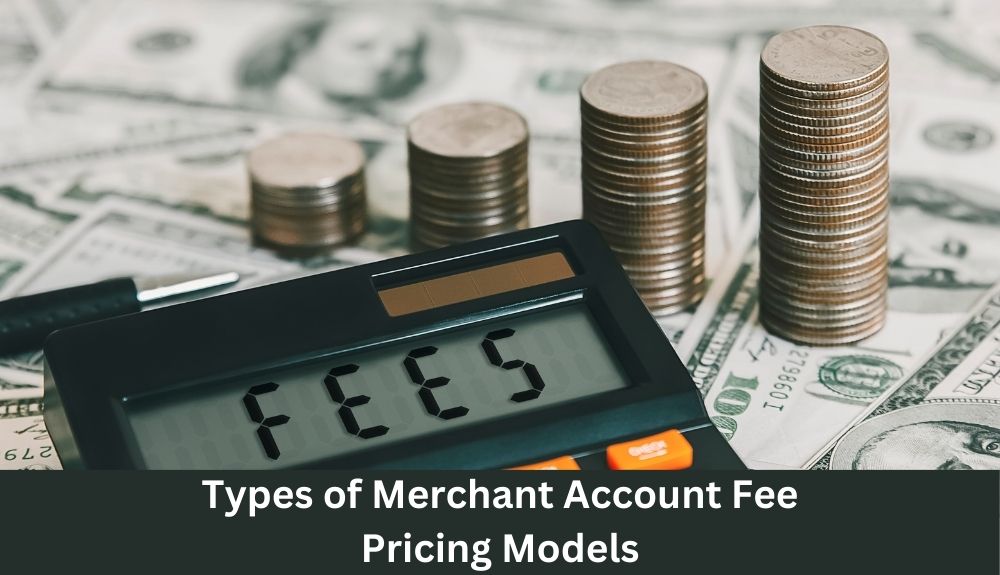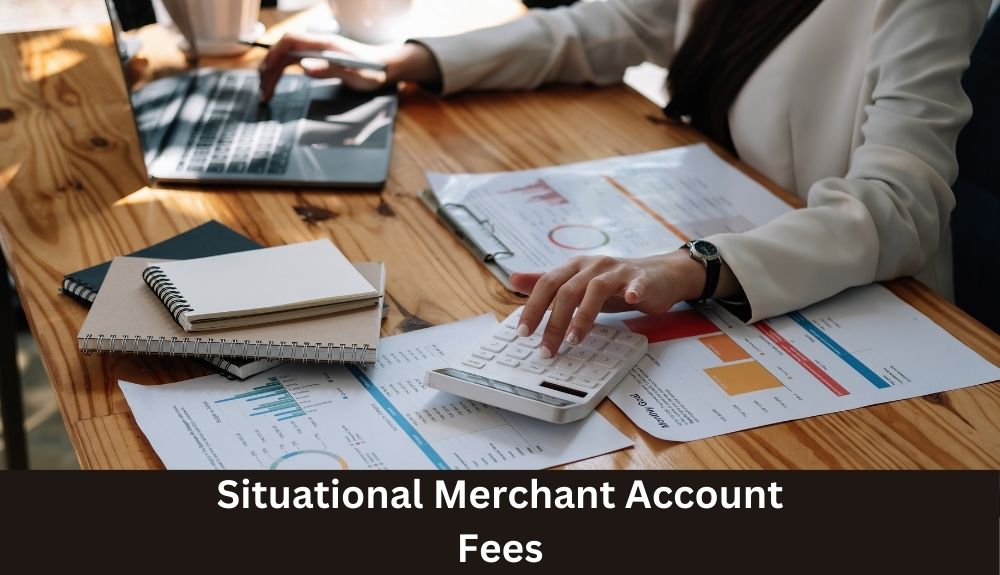Best Credit Card Processing Solutions Tailored for Every Industry

By merchantservices February 13, 2024
Are you a merchant seeking to demystify credit card processing fees? If so, you’ve come to the right place! Understanding the costs associated with accepting credit card payments is crucial for optimizing your bottom line. In this comprehensive guide, we’ll delve into the world of credit card processing fees, equipping you with the knowledge and strategies needed to navigate this complex landscape.
So, why should you care about credit card processing fees? Well, these fees can significantly impact your profitability, making it essential to analyze and negotiate them effectively. Throughout this blog, we’ll explore various types of fees, pricing models, and factors that influence costs. You’ll discover actionable tips for minimizing expenses and improving your payment processing operations.
Join us on this informative journey as we unravel the intricacies of credit card processing fees, empowering you to make informed decisions and optimize your payment processing strategy. Get ready to gain clarity and take control of your merchant fees!
Introduction to Payment Processing Fees
As a merchant, it’s crucial to understand the intricacies of payment processing fees and their impact on your bottom line. These fees can significantly affect your profitability, so gaining clarity on how they work is essential.
Payment processing fees refer to the charges imposed by payment processors for facilitating credit and debit card transactions. They are typically calculated as a percentage of the transaction amount or as a fixed fee per transaction.
Understanding payment processing fees is crucial for effective cost management. By comprehending the different types of fees and how they are structured, you can make informed decisions that minimize expenses and maximize profitability.
Merchant fees encompass various components, including interchange fees charged by card issuers and payment networks, as well as additional fees imposed by the merchant service provider. These fees contribute to the overall cost of payment processing and can vary based on factors such as the type of card used and the level of risk associated with the transaction.
Proactively analyzing and managing payment processing fees helps ensure that your business operates efficiently and optimizes financial resources. By avoiding unnecessary fees and adopting strategies to negotiate the best rates, you can achieve long-term success in managing payment processing costs.
Remember, your goal as a merchant is to provide seamless payment experiences for your customers while keeping your expenses in check. By demystifying payment processing fees and implementing effective strategies, you can navigate this complex landscape and drive profitability for your business.
What Are Merchant Fees and How Do They Work?
Merchant fees are the costs associated with accepting credit card payments from customers. These fees are charged by the merchant service provider, the financial institution, and the card networks involved in the payment processing ecosystem. Understanding merchant fees is crucial for effective cost management and maximizing profitability as a business owner.
Structure of Merchant Fees
Merchant fees are typically composed of several components:
1. Interchange Fees: These fees are paid to the card issuer (e.g., Visa, Mastercard) and are based on a percentage of the transaction amount. Interchange fees vary depending on factors such as the type of card used (debit, credit), the level of risk associated with the transaction, and the specific tier that the transaction falls into.
2. Assessment Fees: Card networks charge assessment fees to cover their operational costs. These fees are typically a small percentage of the transaction volume.
3. Processing Fees: Merchant service providers charge processing fees to cover the costs of processing credit card transactions. These fees can be charged per transaction or as a flat monthly fee, depending on the pricing structure agreed upon.
4. Additional Fees: Depending on specific circumstances, merchants may also encounter additional fees, such as address verification system fees, chargeback fees, or PIN debit fees. These fees are usually situational and occur under certain conditions.
Importance of Understanding Different Types of Fees
Understanding the different types of merchant fees is essential for effective cost management. By analyzing and comparing fee structures, business owners can make informed decisions about which pricing models and merchant account providers best suit their needs.
To optimize payment processing costs, it’s important to evaluate the specific terms and rates associated with each fee. For example, assessing interchange rates, which can vary depending on card brands and transaction types, can help businesses identify areas for potential cost savings.
By negotiating with merchant service providers and understanding the various fees involved, merchants can implement strategies to reduce costs, maximize profitability, and navigate the complex landscape of payment processing.
Remember, being knowledgeable about merchant fees puts you in a better position to negotiate and optimize your payment processing operations, ultimately benefiting your bottom line.
Types of Merchant Account Fee Pricing Models

When it comes to payment processing, understanding the different fee pricing models is crucial for effective cost management. Let’s explore the three main models: flat-rate, interchange, and tiered, and discuss their pros and cons. By the end of this section, you’ll have a clearer understanding of which model suits your business best.
Flat-Rate Pricing
With flat-rate pricing, merchants are charged a fixed rate for each transaction, regardless of the card type or processing volume. This model offers simplicity and transparency since there are no additional fees to consider. It’s an ideal choice for small businesses or those with low transaction volumes. However, keep in mind that the simplicity comes at a cost, as flat-rate pricing may not be the most cost-effective solution for high-volume transactions.
Interchange Pricing
Interchange pricing is based on the interchange fees set by card networks like Visa, Mastercard, and American Express. These fees vary based on factors such as the type of card used, the level of risk associated with the transaction, and the form of payment (e.g., online or in-person). While interchange pricing can be more complex to understand, it often provides merchants with lower overall fees, especially for businesses with a high transaction volume.
Tiered Pricing
Tiered pricing categorizes transactions into different tiers based on their perceived risk level. Typically, these tiers are classified as qualified, mid-qualified, and non-qualified, with different transaction rates for each tier. While tiered pricing offers simplicity, it can be more expensive in the long run, as it may result in higher interchange rates and additional fees for certain card types.
Understanding the key differences between flat-rate, interchange, and tiered pricing models is essential for merchants to make informed decisions about their payment processing needs. Consider your business type, transaction volume, and specific requirements to choose the pricing model that aligns with your goals.
Universal Merchant Account Fees
Merchant accounts come with a range of fees that apply universally to all merchants, irrespective of their industry or payment processing provider. Understanding these fees is crucial for effectively managing the overall cost of payment processing. Here are some common universal merchant account fees to be aware of:
Authorization Fees
Authorization fees are charged each time a transaction is authorized, either for approval or denial. These fees cover the cost of verifying the payment details and ensuring the availability of funds in the customer’s account.
Transaction Fees
Transaction fees, also known as discount fees, are charged for each completed transaction. They are typically a percentage of the total transaction amount. These fees cover the cost of processing the payment and managing the associated risks.
Assessment Fees
Assessment fees are charged by the card networks, such as Visa, Mastercard, or American Express. These fees are usually based on a percentage of the transaction value, and they contribute towards the maintenance and operation of the card networks.
It is important to note that these fees can vary based on factors such as the type of card used, the risk level associated with the transaction, and the pricing structure offered by the merchant service provider. By understanding and analyzing these fees, merchants can make informed decisions to optimize their payment processing costs and improve their bottom line.
Situational Merchant Account Fees

In addition to the universal fees that apply to all merchant accounts, there are certain situational fees that merchants may encounter based on specific payment scenarios. Being aware of these fees and implementing strategies to minimize them can significantly impact the overall cost of payment processing.
PIN Debit Fees
PIN debit fees are typically charged when customers choose to enter a personal identification number (PIN) to complete a transaction. These fees are influenced by factors such as the volume of PIN debit transactions and the type of card being used. To minimize these fees, merchants can encourage customers to use alternative payment methods like contactless payment or mobile wallets, which often incur lower transaction costs.
Address Verification System (AVS) Fees
AVS fees are associated with transactions that require address verification to mitigate fraud. When a customer provides their billing address during the payment process, the merchant’s payment processor verifies the address against the information on file with the card issuer. To minimize AVS fees, merchants should ensure accurate address data is collected at the point of sale and consider utilizing fraud detection tools that can help mitigate the need for address verification.
Return Transaction Fees
Return transaction fees are charged when a customer requests a refund or when a transaction is reversed for any reason. These fees can vary depending on the payment processor and merchant account provider. Minimizing return transaction fees involves implementing effective customer service practices, such as providing clear product descriptions and promptly addressing customer inquiries or concerns. By ensuring customer satisfaction and minimizing returns, merchants can reduce the impact of return transaction fees.
Chargeback Fees
Chargebacks occur when a customer disputes a transaction and requests a refund directly from their card issuer. Chargeback fees are charged to merchants to cover administrative costs associated with processing these disputes. To minimize chargeback fees, merchants should strive to provide exceptional customer service, clearly communicate refund policies, and promptly resolve any customer issues. Implementing fraud prevention measures can also help reduce the occurrence of chargebacks.
By understanding these situational fees and taking proactive steps to minimize them, merchants can optimize their payment processing operations and effectively manage their overall costs.
Red Flag Fees
When it comes to payment processing fees, merchants need to be cautious of certain charges that can significantly impact their profitability. Being aware of these red flag fees is crucial for effective cost management and maximizing your bottom line. Here are some fees to watch out for:
Batch Fees
Batch fees are charges imposed for submitting a group of transactions for settlement in a single batch. While these fees may seem small individually, they can add up over time, especially for businesses with high transaction volumes. To minimize batch fees, consider batching transactions strategically or negotiate with your payment processor for reduced rates.
Cancellation or Termination Fees
Many merchant service providers include cancellation or termination fees in their contracts. These fees are incurred if you decide to switch payment processors or terminate your agreement before the contract’s end date. It’s essential to carefully review these terms and negotiate favorable terms to avoid hefty fees that could eat into your profits.
PCI Non-Compliance Fees
Payment Card Industry (PCI) standards ensure the security of cardholder data. Non-compliance with these requirements can result in costly fines and penalties. Some payment processors may charge additional fees if your business fails to maintain PCI compliance. Make sure to stay up-to-date with the necessary security measures to avoid unnecessary expenses.
Terminal Lease Fees
If you lease payment terminals from your provider, be aware of terminal lease fees. These charges can be fixed or variable and are typically associated with the rental or lease of physical card payment machines. Review your lease agreement carefully to understand the terms and costs involved. Owning your terminals or exploring alternative options may help you avoid these fees in the long run.
To avoid or mitigate these red flag fees, it’s advisable to thoroughly review your merchant service agreements, negotiate favorable terms, and stay proactive with your payment processing strategy. By being vigilant and well-informed, you can minimize expenses and ensure a smooth and profitable payment processing operation.
Remember, understanding and effectively managing payment processing fees is crucial for your long-term success.
Conclusion
In this comprehensive guide, we have shed light on the intricacies of credit card processing fees and their impact on a merchant’s profitability. Understanding the various types of fees, pricing models, and potential risks is crucial for effective cost management and optimizing your payment processing operations.
Here are the key takeaways from our discussion:
1. Payment processing fees play a significant role in a merchant’s bottom line. By gaining clarity on these fees, you can make informed decisions to minimize costs and improve profitability.
2. Merchant fees are structured to cover the expenses associated with processing credit card payments. They can include interchange fees, transaction fees, assessment fees, and additional fees charged by card issuers and networks.
3. Different pricing models, such as flat-rate, interchange, and tiered, offer unique advantages and disadvantages. By understanding these models, you can choose the one that aligns best with your business needs and transaction volume.
4. Universal merchant account fees, such as authorization fees and transaction fees, are charged to all merchants and contribute to the overall cost of payment processing.
5. Situational merchant account fees, like PIN debit fees and chargeback fees, may arise in specific circumstances. Minimizing these fees requires implementing best practices and optimizing your payment processing operations.
6. As a merchant, it’s essential to be aware of red flag fees that could negatively impact your profitability. By avoiding and negotiating fees such as batch fees, termination fees, PCI non-compliance fees, and terminal lease fees, you can mitigate unnecessary expenses.
In conclusion, mastering the art of understanding and managing payment processing fees is a crucial aspect of long-term success for any merchant. By implementing the strategies and tips provided in this guide, you can optimize your payment processing operations, minimize costs, and ultimately improve your profitability.
Remember, the payment processing landscape is constantly evolving. Stay updated with our editorial team to ensure you have the most current information and continue maximizing the benefits of your payment processing solutions.
Book your free consultation with us today, and let our experts provide personalized advice tailored to your specific needs and goals. Together, we can navigate the complex world of payment processing and help your business thrive.
Leave a Reply